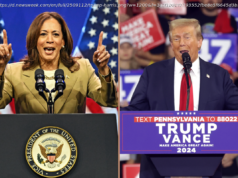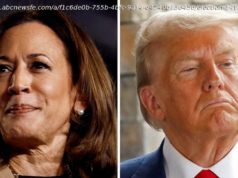Many residents of cosmopolitan, freewheeling Tel Aviv, say that while they are a little concerned about an increase in terrorist attacks, they are too busy enjoying life and making money to worry about the repercussions from President Trump’s announcement this week that he will relocate the U. S. Embassy to Jerusalem.
TEL AVIV, Israel — Let Jerusalem have it.
That’s the attitude of many residents of cosmopolitan, freewheeling Tel Aviv, who say that while they are a little concerned about an increase in terrorist attacks, they are too busy enjoying life and making money to worry about the repercussions from President Trump ’s announcement this week that he will relocate the U. S. Embassy to Jerusalem.
“ Trump ’s decision is not going to change the atmosphere here,” said Ido Bar-El, a Tel Aviv artist who commutes three times weekly to his teaching job in Jerusalem . “This city is a place where people live freely without fear.
“But in Jerusalem, the bus stops are protected with [bomb-blast-resistant] cement cubes, so I don’t use public transit in the capital because it’s safer to drive my own car,” he added.
Tel Aviv, which marked its centennial seven years ago and is often called Israel ’s Miami, has emerged as the country’s cultural and commercial hub even as 3,000-year-old Jerusalem was declared Israel ’s capital shortly after the state was founded in 1948.
It’s a city marked by galleries, restaurants and clubs and is one of the world’s premier business startup scenes.
Jerusalem, on the other hand, is known for an unmatched religious heritage marked by the Western Wall, synagogues and Jewish seminaries or yeshivas for the pious, historic mosques and churches — and its walled Old City with separate quarters for the three faiths that have for centuries contested for supremacy in the Holy Land.
“ Tel Aviv has the normal vibes of a capital from a stock exchange to art galleries to the headquarters of the Israeli political parties — including Mr. Netanyahu’s Likud Party,” said Mr. Bar-El, whose art is assembled from objects he finds on long strolls through Tel Aviv . “ Jerusalem is 3,000 years of disputes — I am sorry to say.”
Ironically, while a much greater proportion of Tel Aviv ’s population is Jewish, the coastal city is far less religious than Jerusalem, with stores, restaurants and nightclubs open on the Sabbath while pious Jerusalem adheres to rabbinic prohibitions.
“Most of my friends had moved away, and I found my social circle to be very limited,” said 36-year-old Shai Ben-Ari, a defense reporter for I-24 News who left Jerusalem years ago. “That, and a new job opportunity were what caused me to move on.”
Last year, Israel’s Central Bureau of Statistics announced that Jerusalem led the country in reverse residential migration.
According to the report, the city where the U. S. Embassy will one day be had a net loss of 6,740 residents. Many, like Mr. Ben-Ari, say they left because their social and professional lives were more compatible with Tel Aviv.
Keeping the Defense Ministry
Even though the Israeli parliament and other government agencies relocated from Tel Aviv to Jerusalem decades ago, Israel ’s all-important Defense Ministry remained in the city along the Mediterranean coast.
“The location was decided on in the 1950s,” said Mr. Ben-Ari . “The reason had a lot to do with simple convenience — much of the top brass lived in Israel ’s central coastal region. That remains true to this day, and there is now the added complication of sensitive military systems and equipment that have been installed over the years and which are difficult to relocate.”
American immigrants increasingly show a preference for Tel Aviv over Jerusalem .
“Nine out of every 10 jobs are in the Tel Aviv area, and that made it pretty easy to decide where I needed to live,” said author and entrepreneur Michael Bassin. The 31-year-old Cincinnati native is chief revenue officer at FirstImpression.io, a digital advertising startup.
Unlike most other Israelis, Mr. Bassin had the opportunity to visit Arab nations with his U. S. passport and studied Arabic at the American University of Sharjah in the United Arab Emirates. He even wrote a book about his adventures as an American in the Gulf and as an Israeli army military translator.
He said his background leads him to believe Mr. Trump ’s announcement Wednesday was given a tacit green light in the region.
“As much as President Trump is known for making spontaneous decisions, I’d be very surprised he’d announce a relocation of the American Embassy to Jerusalem without implicit support by moderate Arab countries,” Mr. Bassin said. “The Gulf countries and Egypt see greater cooperation with Israel as in their strategic interest.”
Still, many residents of Tel Aviv who are skeptical of the conservative government of Prime Minister Benjamin Netanyahu say they are disheartened.
Yael Lavie, a Tel Aviv native and media ethics professor at the Interdisciplinary Center in the northern suburb of Herzliya, thinks the embassy move represents a definitive demise for the two-state solution embraced by the city’s left-leaning residents.
“Tel Avivians don’t see the point of the Trump announcement, as they know it to be a symbolic one, and to many here it feels like spin,” Mr. Lavie said. “But in Tel Aviv, the residents are grappling with the notion that their leftist two-state solution agenda is the minority view in the rest of Israel .”
In the last Israeli elections held in March 2015,Mr. Netanyahu’s Likud and allied Jewish religious and nationalist electoral lists swept eight out of 10 of the country’s largest cities.
Only Tel Aviv and the northern port city of Haifa went for centrist and left-leaning parties in those elections.
“The sad thing about Tel Aviv is that it is becoming more and more an ideological bubble or the last stand of the Israeli left or what remains of it,” Mr. Lavie said.
Immune
While the embassy move is likely to exacerbate conflict with Palestinians, Tel Aviv is largely immune from the dispute on a day-to-day basis. Arabs constitute less than 10 percent of the metropolitan population, compared with nearly 40 percent in disputed Jerusalem.
Still as Israel ’s trade increases with China and India, which along with 84 other nations maintain their embassies in Tel Aviv, residents say if they are worried about anything, it’s that violence could return to their streets.






